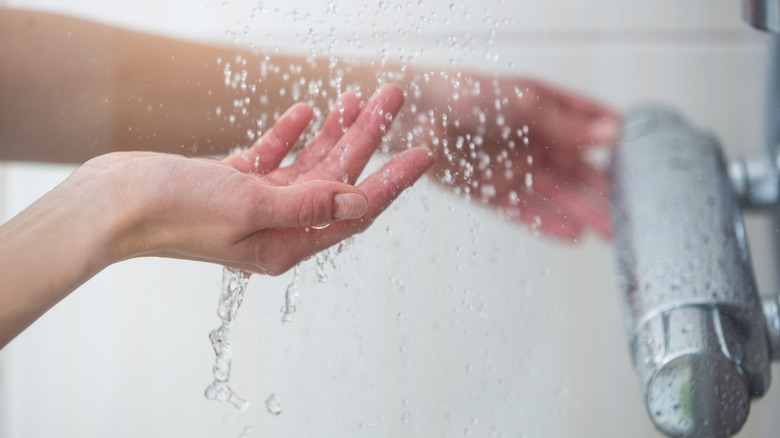How To Practice Good Hygiene At Public Pools
Swimming has many benefits. However, various infections can occur when the activity is undertaken in public pools. According to the Centers for Disease Control and Prevention (CDC), more than 208 cases of recreational water swimming-related illnesses occurred between 2015 and 2019. The report indicated that nearly 96% of the recorded outbreaks came from public pools, water playgrounds, and other recreational water sources like hot tubs. A 2016 report published by the CDC also noted that 12.3% of routine inspections of public pools in 2013 led to their immediate closure due to violations, including those related to disinfectant concentration.
If you often swim in public pools, this lack of cleanliness might come as a surprise. However, some swimmers may have habits that can be more risky than beneficial when it comes to diving in. In other words, pool users must also understand their role in being hygienic. Making the pool healthier and safer for other users also reduces your susceptibility to swimming-related diseases. Outlined below are a few ways to improve hygiene at public pools.
How to practice good hygiene at the pool
According to Cleveland Clinic, public pool swimmers must avoid swallowing water. Pool handlers may add chlorine to the water before starting each day, but this chemical doesn't kill all germs instantly. Swallowing just a little bit of contaminated pool water can make you vulnerable to various swimming-related infections. Also, as a seasonal swimmer, it's crucial not to underestimate the relationship between different weather conditions and infection rates.
A 2014 study published in the journal PLOS ONE notes that infection rates are twice as high in the summer months for infections like P. aeruginosa and E. coli, pathogens commonly found in water. A 2008 study published by Oregon State University reiterates that infections caused by P. aeruginosa might be more highly linked to swimming in pools. So, if you tend to swim in outdoor pools, it might be best to use caution during the hot season.
Also, to prevent contracting hot tub folliculitis, a common skin infection of the lower part of the body, Healthline advises against shaving before using public hot tubs and jacuzzis (which is where the condition is commonly contracted). Healthline also advises swimmers to skip sessions if they're recovering from illnesses like diarrhea to prevent fecal contamination. According to WebMd, about 87% of swimming-related illnesses are connected to bugs found in feces. Be a good pool citizen and skip swimming if you're unhealthy.
Common swimming-related illness
Mayo Clinic says cryptosporidium, a contagious illness, causes many pools to close every season. A gulp of contaminated water is all it can take to contract cryptosporidium when swimming. The symptoms can include stomach ache, vomiting, appetite loss, and weight loss.
Additionally, staying too long in contaminated swimming water can affect your ear health. Every year, infections like swimmers ear are responsible for over 2 million healthcare visits in the United States (via Medical News Today). The source states that bacteria cause this infection in the ear, and symptoms can range from redness or swelling in the ear to itchiness and pain.
Legionnaires' disease is uncommon but can be very serious. According to NHS, legionnaires' disease can be caused by inhaling water droplets from contaminated swimming pools. Symptoms include chest pains, flu, high temperature, and difficulty breathing. The disease usually develops two to 10 days after exposure to legionella bacteria, and the condition can be fatal if you don't seek prompt medical attention, per Mayo Clinic. To treat the illness, your doctor might recommend antibiotics.



